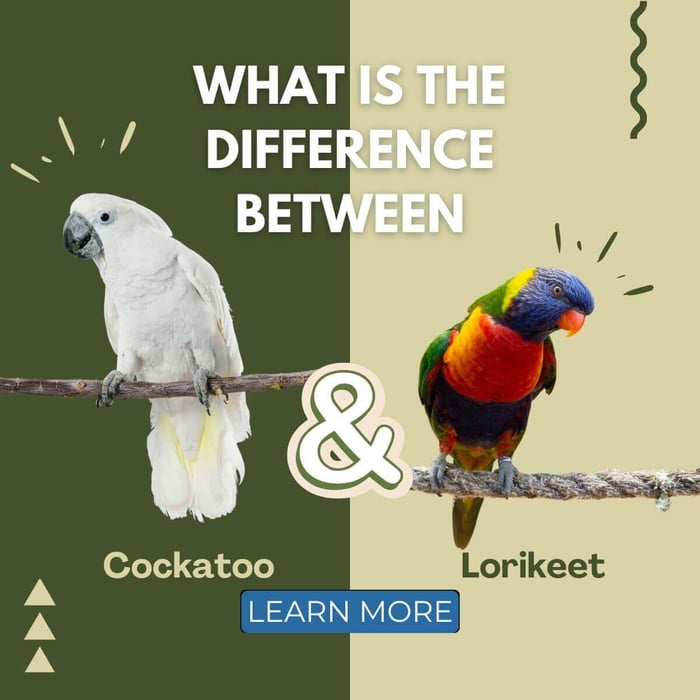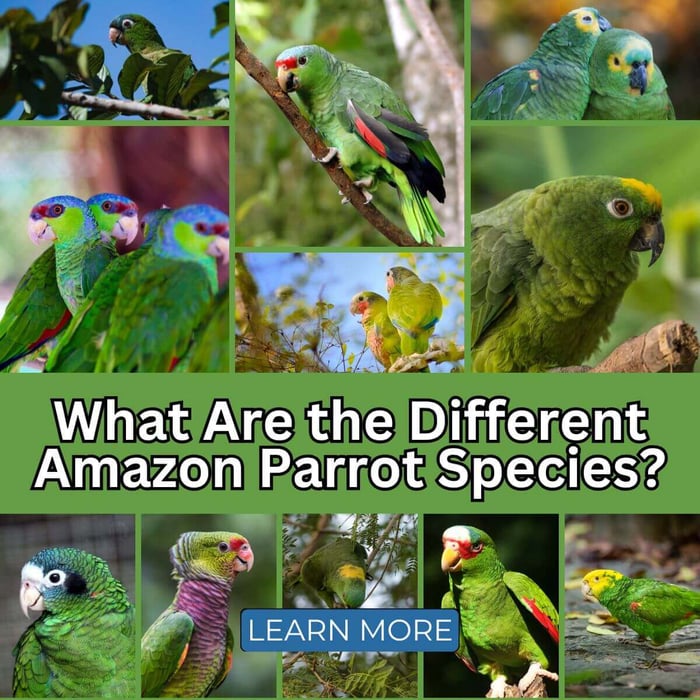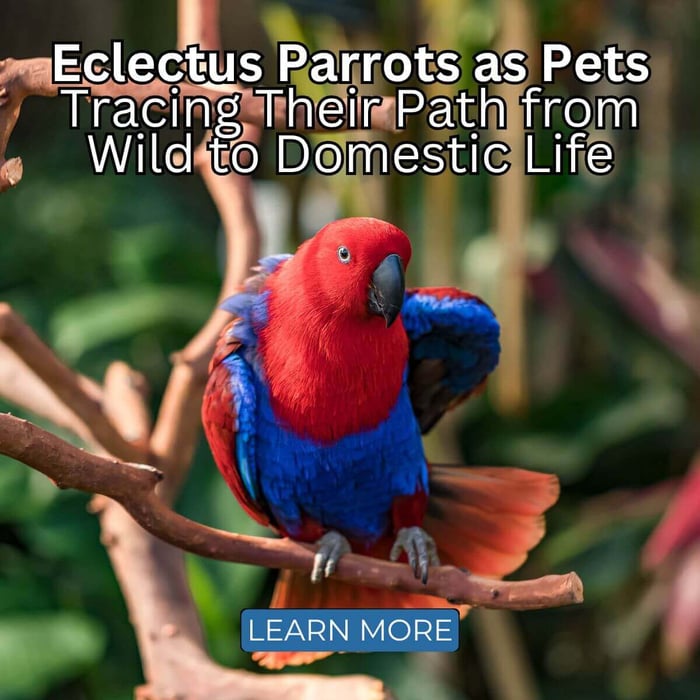How Long Do Parrots Live? A Complete Guide to Parrot Lifespan
When considering a parrot as a pet, one of the most important questions to ask is, how long do parrots live? Parrot lifespan varies widely depending on the species, care, diet, and environment. While some small parrots may live for just a decade, others can become lifelong companions, outliving their owners. In this guide, we delve into the average lifespans of different parrot species, factors that influence longevity, and what you can do to help your feathered friend live a long, healthy life.
Understanding Parrot Lifespan
Parrots are among the longest-living pet birds, with lifespans ranging from 5 years for smaller species to over 80 years for some of the largest. Unlike dogs or cats, choosing a parrot often means making a decades-long commitment. For many species, particularly larger ones, their parrot lifespan rivals or exceeds that of humans. It's essential to understand this before bringing a parrot into your home.
Average Lifespans of Common Parrot Species
Small Parrots
- Budgerigars (Budgies): These lively and affectionate birds typically live 5 to 10 years, though with excellent care, some have been known to live up to 15 years.
- Lovebirds: Small but social, lovebirds can enjoy a 10 to 15 year lifespan, thriving in pairs or with close human interaction.
- Cockatiels: Popular for their gentle personalities and whistling abilities, cockatiels often live between 15 and 25 years.
- Parrotlets: Despite their tiny size, parrotlets are bold and intelligent, with a lifespan of 12 to 20 years when well cared for.
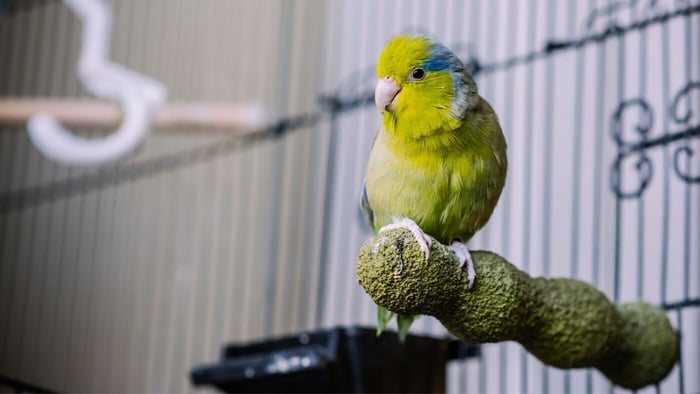
Medium Parrots
- Conures: These colourful and entertaining birds can live 15 to 30 years, depending on the species. Green-cheeked conures tend to live shorter lives than the larger Sun Conures.
- Quaker Parrots (Monk Parakeets): Incredibly smart and talkative, Quakers may live 20 to 30 years, making them a favourite among bird lovers.
- Caiques: Known as the clowns of the parrot world, caiques are full of energy and can live 20 to 30 years.
- Senegals and Meyers Parrots: These quieter parrots are well-suited for flats and smaller homes and may live 25 to 35 years.
- Indian Ringneck Parakeets: These elegant parrots typically live 25 to 35 years, though some individuals have reached 40 years. Their remarkable vocal abilities and expressive personalities make them a joy to own, provided their need for social interaction and mental stimulation is met.
Large Parrots
- African Grey Parrots: Widely regarded as the most intelligent of all parrots, African Greys have an impressive lifespan of 40 to 60 years, though some have lived longer.
- Amazon Parrots: Vocal and charismatic, Amazon parrots often live 40 to 70 years with proper care and social interaction.
- Eclectus Parrots: These striking birds, known for their sexual dimorphism, have a typical lifespan of 30 to 50 years.
- Cockatoos: Highly affectionate and prone to forming strong bonds, Cockatoos may live 40 to 70 years, depending on the species and care.
- Macaws: The giants of the parrot world, Macaws can live 50 to 80+ years. Some Blue and Gold Macaws in captivity have reached their 90s, making them a truly lifelong commitment.
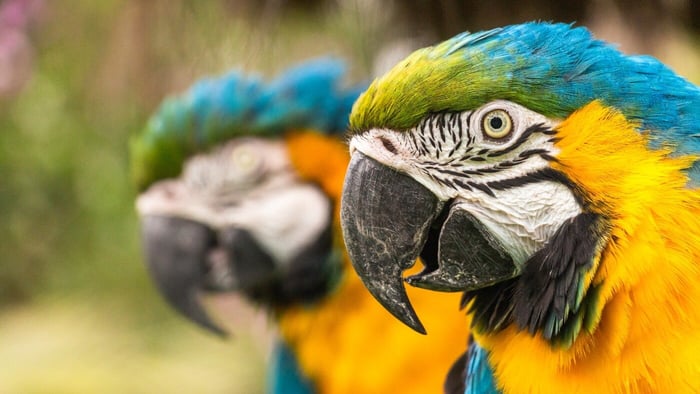
Factors That Influence Parrot Lifespan
A parrot's lifespan is not set in stone. While genetics certainly play a role, there are many things an owner can do to influence how long and how well a parrot lives.
1. Diet
Feeding your parrot a balanced diet is essential. Avoid all-seed diets, which can lead to vitamin deficiencies and obesity. Instead, opt for a base of high-quality pellets, such as Hagen or Askio Nature, and supplement with fresh vegetables, fruits, and occasional healthy treats. Proper hydration and variety are also important.
2. Environment
The environment your parrot lives in significantly affects their well-being. Exposure to toxic substances (like Teflon fumes, cigarette smoke, aerosol sprays, and certain plants) can be fatal. Provide a spacious cage, natural perches, and a clean, temperature-controlled area.
3. Mental Stimulation and Socialisation
Parrots are intelligent and emotional animals that can suffer from boredom, loneliness, and stress. Daily interaction, training sessions, toys, and opportunities for problem-solving are vital to their mental health.
4. Veterinary Care
Annual visits to an avian vet help catch health problems early. Some issues, like liver disease or respiratory infections, can be life-threatening but treatable if diagnosed early.
5. Genetics
Birds from responsible breeders with healthy bloodlines are more likely to live longer, healthier lives.
6. Exercise
Physical activity is crucial. Allow your parrot time outside the cage every day to stretch its wings, climb, and explore in a safe environment.
How to Extend Your Parrot's Lifespan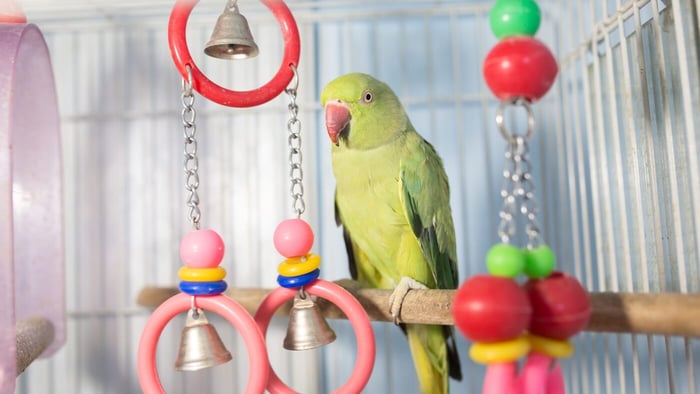
If you want your parrot to live a long, joyful life, consider the following tips:
- Provide a varied and nutritious diet, including Askio Nature or Harrison's parrot foods, available from Parrot Essentials.
- Offer daily out-of-cage time and mental enrichment like foraging toys.
- Schedule annual check-ups with a qualified avian vet.
- Keep your parrot's environment safe from harmful chemicals, open windows, and other pets.
- Avoid loneliness by spending time with your parrot or providing a bonded companion.
- Create a consistent routine to reduce stress. Parrots appreciate predictability, which contributes to their emotional well-being.
- Train using positive reinforcement to build trust and provide stimulation. Simple tricks and games also reinforce your bond.
Preparing for the Commitment
When asking yourself, "How long do parrots live?", remember that the answer may affect not just your life but the lives of future generations. For larger parrots, it's not unusual for them to be passed down in wills or rehomed when their owners can no longer care for them. Make sure you have a long-term plan in place, especially for birds like Macaws, Cockatoos, or African Greys.
Also, consider your stage of life and future responsibilities. An older adult adopting a young Macaw may want to arrange a trusted caregiver or include care instructions in their estate planning. Some owners even set up savings for their birds' future veterinary needs.
Final Thoughts
Parrots are unique among pets in that they form deep emotional bonds and can share your life for decades. Understanding a parrot's lifespan is crucial before deciding to bring one home. With love, proper nutrition, social interaction, and medical care, your parrot can be a cherished companion for many years.
At Parrot Essentials, we offer a wide range of parrot supplies designed to support a long and healthy life, from balanced food options to enrichment toys and expert advice. If you're ready for the commitment, a parrot can be one of the most rewarding pets you'll ever have.
FAQs
How long do parrots live on average?
Parrot lifespans vary by species. Small parrots like Budgies may live 5–15 years, while larger parrots such as Macaws can live 50–80 years or more with proper care.
What can I do to help my parrot live longer?
Feed a balanced diet (pellets, fresh fruit, and vegetables), provide daily social interaction and exercise, maintain a safe environment, and schedule regular avian vet check-ups.
Which parrot species lives the longest?
Macaws and Cockatoos are among the longest-living species, often reaching 70–80 years, with some individuals living even longer in captivity.
Can poor diet really shorten a parrot’s life?
Yes. Diets high in seeds and lacking in nutrients can lead to obesity, vitamin deficiencies, and serious health issues. A varied, nutritious diet is key to longevity.
Should I make long-term plans for my parrot's care?
Absolutely. Many parrots outlive their owners. It’s wise to arrange future care, especially for larger species, through a trusted person or in your will.


